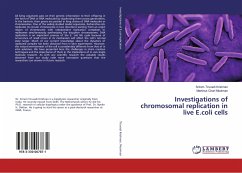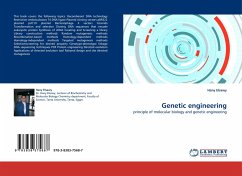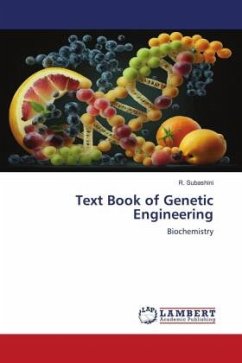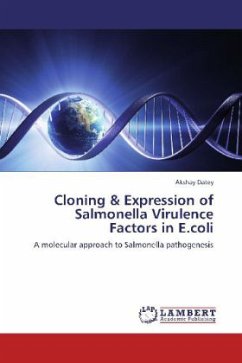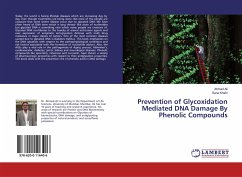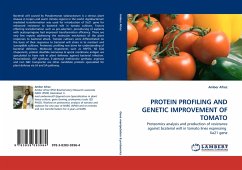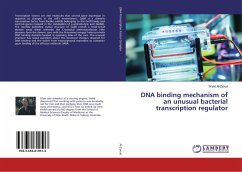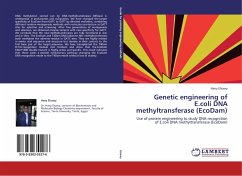
Genetic engineering of E.coli DNA methyltransferase (EcoDam)
Use of protein engineering to study DNA recognition of E.coli DNA methyltransferase (EcoDam)
Versandkostenfrei!
Versandfertig in 6-10 Tagen
32,99 €
inkl. MwSt.

PAYBACK Punkte
16 °P sammeln!
DNA methylation carried out by DNA methyltransferases (MTases) is widespread in prokaryotes and eukaryotes. We have changed the target specificity of EcoDam from GATC to GATT by directed evolution, combining different random mutagenesis methods with restriction protection at GATT sites for selection and screening. After four generations of mutagenesis and selection, we obtained enzyme variants with new specificity for GATT. We conclude that the new methyltransferases are fully functional in vivo and in vitro. The EcoDam and T4Dam DNA-(adenine N6)- methyltransferases both methylate the adenine ...
DNA methylation carried out by DNA methyltransferases (MTases) is widespread in prokaryotes and eukaryotes. We have changed the target specificity of EcoDam from GATC to GATT by directed evolution, combining different random mutagenesis methods with restriction protection at GATT sites for selection and screening. After four generations of mutagenesis and selection, we obtained enzyme variants with new specificity for GATT. We conclude that the new methyltransferases are fully functional in vivo and in vitro. The EcoDam and T4Dam DNA-(adenine N6)- methyltransferases both methylate the adenine residue in GATC sites. They are highly related in amino acid sequence and structure but deviate in their contact to the first base pair of the target sequence. We have transplanted the T4Dam DNA recognition module into EcoDam and show that the EcoDam K9A/Y138R double mutant is highly active and specific. This result indicates that there exists a smooth evolutionary pathway changing the EcoDam DNA recognition mode to the T4Dam mode without loss of activity.



